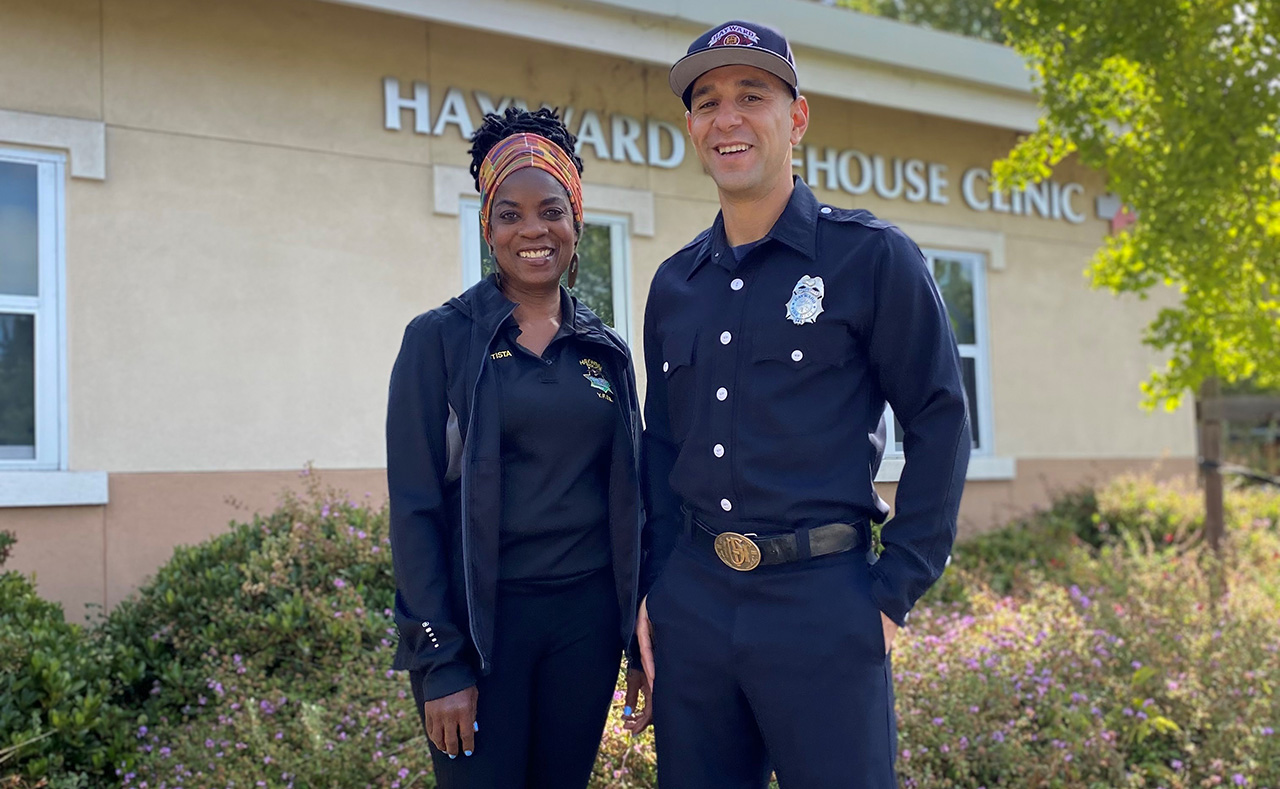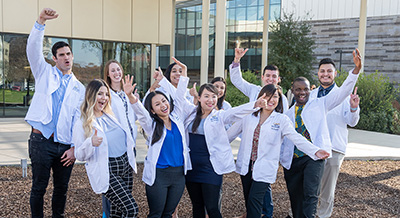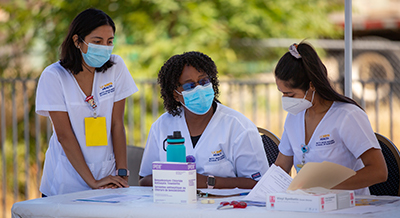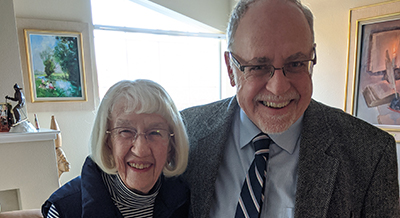When Frank Crespo entered the master’s-degree physician assistant (P.A.) program in 2018, he arrived at the Betty Irene Moore School of Nursing at UC Davis an experienced firefighter paramedic.
As a member of the Hayward Fire Department in Hayward, California, he was one of 124 firefighter-paramedics trained to both combat fires and provide emergency medical aid. But he was the only one motivated to seek an advanced degree to address what he believes are inefficiencies in how agencies respond to an emergency call.
“The 911 system is really a social safety net that catches everything. A lot of our calls for service aren’t true medical emergencies,” Crespo explains.
Crespo says many calls involve nonemergent needs stemming from homelessness, mental illness and substance abuse. When responders arrived for those calls, the patient care reports were unable to sufficiently capture pertinent data related to the underlying cause of these nonemergent needs. Moreover, no follow-up resources for support were available.
“If given the tools, our personnel are at the pivot point where decisions are made,” says Hayward Fire Chief Garrett Contreras. “They can make the determination that this patient would better benefit from an alternative method rather than transport to an emergency department. Our 911-response models must evolve with the needs of our community beyond textbook police, fire and medical emergencies.”
Crespo and Contreras share the same frustration about the status quo. But the new Hayward Evaluation and Response Team offers promise. The idea was prompted by the movement opposing police violence after George Floyd’s murder in Minneapolis in summer 2020.
Amid that national debate, Crespo graduated from the school’s P.A. program. Soon after, he joined the Mobile Integrated Health Unit (MIHU), a pilot program in which firefighter-paramedic-P.A. Crespo responds to non-emergency calls with a mental health clinician.
“Post COVID-19 and after George Floyd, our city council entrusted the fire department to be the primary response for calls involving homelessness, mental illness and substance abuse,” Contreras explains. “When Frank started, I told him to go find some of these patients that he couldn’t help the first time.”
One Hayward resident, 57-year-old David, experiences homelessness and repeatedly uses the 911-system to manage his atrial fibrillation and hypertension.
“I hate using 911 and going to the hospital,” David recalls. “They look at me like a frequent flier, but I’ll do what I have to do to survive.”
Crespo and his colleague, Jacqueline Bautista, a licensed marriage and family therapist, visited with David over breakfast to understand more about his challenges across several areas, including housing, health care, disability, social security and transportation. Together, they connected David with the Hayward Navigation Center, providing him transitional housing with wrap-around social support services. In addition, David has now established a primary care provider to manage his long-term health needs at the Hayward Firehouse Clinic.
“It just gave me hope for a better life. I finally found someone I can talk to,” he says.
Contreras says the new unit “will effect change each individual contact at a time.”
Already, Crespo recognizes additional areas of improvement. He’s retooled the backend of the patient care reporting system so frontline responders can refer patients to the MIHU for follow up, generating valuable data highlighting the unmet needs of the 911 system unaddressed by police or fire response, ambulance transport or emergency department visit.
“Before, all we had were our stories. We could not accurately identify the scope of these unmet needs because we were lacking sufficient data,” Crespo says.
“This data will tell our stories, enabling us to address the root causes of these non-emergency calls flooding our 911 system.”
Crespo says his P.A. education equipped him to see the bigger picture and drill down into the data.
“With a clear focus on the social determinants of health and the academic background of data collection, UC Davis definitely provided me the tools, confidence and resources to take on this challenge,” he says. “My goal is to thread together all of these disconnected points and evolve our 911 system into a network where we can get the right resources to the right calls for service.”
Contreras says this approach would not work without Crespo’s unique skillset.
“If we didn’t have Frank’s bedside manner and service culture as a firefighter-paramedic, we would not survive one day. He treats the public like a member of his family,” Contreras says.
At the end of the pilot year, Crespo hopes to use the data to justify additional resources, such as patient advocates, social workers and case managers, to augment the 911 system and address the unmet needs of people within his community. Contreras hopes the grant money evolves into budgetary dollars to improve long-term access to medical, mental health and other supportive services, reducing the need for police officers to intervene.






